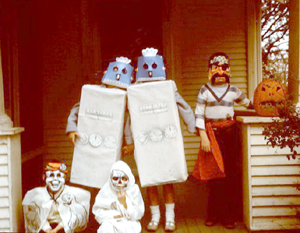Watching a production of one of your plays is like revisiting your children.
You spend months, sometimes years, carefully helping a play to grow and mature. And then you set it free, submitting it here, there, and everywhere. If you’re lucky, the play has a production. Or two.
I’ve been very lucky with one of my plays, a courtroom drama called A PATCH OF EARTH. It tells the tale of a war criminal – from the point of view of the perpetrator. It’s a courtroom drama based on a trial I covered at the International Criminal Tribunal for the former Yugoslavia.
The play had staged readings from Key West to Carmel and finally premiered in Buffalo, where it won the Maxim Mazumdar New Play Competition. But it’s taken on a life of its own among college students, with productions in Detroit, Pretoria, Costa Mesa, and Sussex. It was published in a collection from the University of Wisconsin Press called “The Theatre of Genocide: Four Plays About Mass Murder in Rwanda, Bosnia, Cambodia, and Armenia.” The most recent production was a couple of weeks ago at the Jersey shore at Richard Stockton College.
I always try to go see the show. The only production I missed was in South Africa and I’m still kicking myself. It’s gratifying to hear how an audience reacts to one of our “children.” This play in particular generates lively debates over the nature of justice and punishment and reconciliation.
But seeing one of our plays is a reminder about the collaborative nature of theatre. And like the good parents that we are to our plays, it’s also a lesson in letting go.
This most recent production at Richard Stocker College was beset by calamity. One of the lead actors was going through chemotherapy. He felt strong enough to rehearse. But during tech rehearsals, he realized he didn’t have the strength to go on. Another actor in the cast was drafted to play two roles.
But that disaster paled compared to the saga of the lead character Drazen Erdemovic. Opening night, the actor played the role with a Bluetooth device in his ear. The director was feeding him lines. Unfortunately, she was so loud, the audience could hear her feeding lines – and then hear the actor spouting something completely different.
I had heard that the original actor had to leave the play – domestic violence, jail, drugs – it was left unclear. So I felt a lot of empathy for the actor who stepped in.
And I felt philosophical.
Watching the play was like watching it for the first time. Lines I never even considered came forth from the mouths of my characters. It was an adventure.
But in that wild performance, I realized that the power of the play wasn’t in the individual words. It was in the story, the characters, their struggles, and their choices. That’s what captivated the audience. And the actors. And even the playwright.
In the talkback session after the play, the audience asked the same questions audiences of this play always ask: what would I do if I were in his situation? What’s a just punishment for a kid who confessed to killing “no more than 70” of the 1200 people shot at that farm outside Srebrenica? Why are his commanding officers still free and unindicted by the Tribunal?
I also witnessed the effect this story had on this troupe of actors. In their bios, they wrote of “the honor” of being part of this “important project” and “doing justice to the story.” What better tribute to the power of what it is we do for very little money and even less recognition?
But there’s more to the story. The next night, the entire production was moved from a college auditorium to a local art museum.
And the production would feature a brand new lead actor in the role of Drazen Erdemovic. That story tomorrow.
Like this:
Like Loading...


